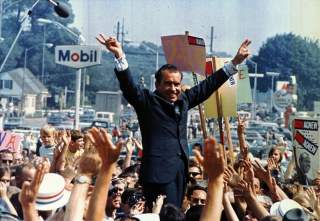The Neverending Debate: The Legacy of Richard Nixon
"A tragic figure whose political brilliance and often sound intentions were overwhelmed by his own outsized flaws."
I have written and still believe (though it remains controversial) that Nixon’s handling of the Vietnam quagmire, which he inherited, represented also a delicately conceived effort to balance the military needs of that botched war effort with ominous domestic political forces that threatened every day to destroy him, as they had destroyed his predecessor. And, though it was little understood at the time, this delicate effort was crucial to his policy of bringing China into the community of nations in the interest of Asian stability.
It might be noted, parenthetically, that during this difficult time, Nixon never publicly cast blame upon his predecessor, though the political catastrophe he inherited and the political passions it unleashed rendered his leadership challenge nearly hopeless. The current occupant of the White House never saw fit to remain at such an elevated level in regard to his own predecessor.
Nixon operated on the margin; in part because the intertwined foreign and domestic crises he inherited required it; in part because his flawed temperament placed him there. In the end, that flawed temperament led him into thickets of venom and wrongdoing that couldn’t be tolerated by his countrymen. Thus was he crushed, and appropriately so.
But, as we look back upon his works and his legacy, it is more meaningful, in terms both of Nixon himself and of American history, to see the man whole, capable of worthy thoughts and ambitions, often stunningly clever in his political execution, significant in many of his initiatives—and also a tragic tale worthy of a great nation.
Robert W. Merry is political editor of The National Interest and the author of books on American history and foreign policy. His most recent book is Where They Stand: The American Presidents in the Eyes of Voters and Historians.

